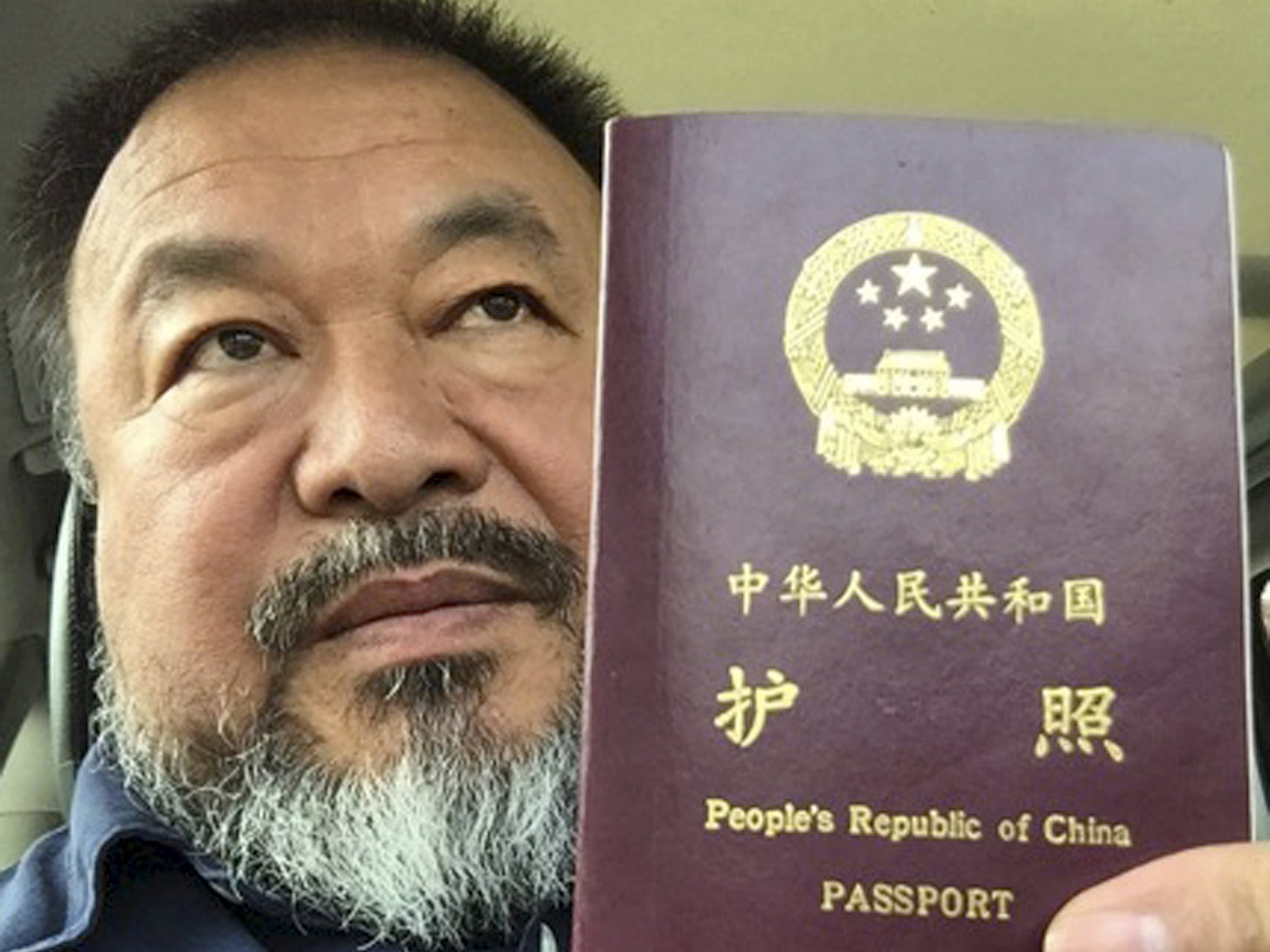Ai Weiwei refused six month visa by UK over undeclared 'criminal conviction,' claims Britain is denying his 'rights as a citizen'
The artist claims he was never officially convicted by Chinese authorities despite being detained for 81 days

Dissident Chinese artist Ai Weiwei has been denied a six-month visa by the British government amid claims he failed to declare a “criminal conviction”.
The artist posted a letter on his Instagram account from the UK home office refusing his bid for a six month business visit and suggesting he made “false claims” on his visa application form.
The letter states that Ai should have declared a “criminal conviction” but hadn’t when he’d applied for a six month business visa.
However, Ai has never been convicted of a crime in China despite having been detained for 81 days in 2011.
The letter does confirm, however, that Ai will be able to attend his upcoming blockbuster exhibition at the Royal Academy when it opens in September.
He has been granted a 20-day visa to mark the opening of the landmark solo show in London.
However, the time limitations mean Ai will be unable to supervise the installation of the exhibition which has a private preview on 15 September.
The artist is permitted to visit the UK from the 9 to the 29 September and the letter states it "has been restricted to the requested dates of travel... because you have failed to meet the business visitor rules".
Ai posted separately on Instagram that he “has never been charged or convicted of a crime” and had “attempted to clarify this claim with UK Visas and Immigration Department and the British Embassy over several telephone conversations”.
He continued: “But the representatives insisted on the accuracy of their sources and refused to admit any misjudgement.”
Ai claims these actions amounted to a denial of his rights as an ordinary citizen.
Last week the Chinese government unexpectedly returned his passport which had been withheld for four years amid suspicions over his politics.
He announced the news of the return of his travel document on Instagram with the caption: “Today, I got my passport.”
Speaking afterwards, Ai said the Chinese authorities had not warned him of any restrictions or conditions on his future travel plans – allowing him to fly to the West.
“I’m not surprised because in reality, they’ve said they would return me my passport for many years,” he told Reuters. “They’ve never said they would never give it to me, except that it has dragged on for four years.”
The last time Ai was in London was to oversee the installation of his room full of 100 million porcelain sunflower seeds, the work that really made his name in the UK, at Tate Modern in 2010. It was one of his last trips abroad before his passport was confiscated.
Big ideas: Stars of Turbine Hall
Show all 9Ai’s work has long tackled political themes, and his unrelenting criticism of the authorities is believed to have contributed to his arrest in 2011 over a contested tax bill.
He was held largely in solitary confinement and the conditions were “extremely tough” one source said shortly after his release, revealing he was repeatedly interrogated and subjected to psychological torture. It led to condemnation of the Chinese government from around the world.
After 81 days, Ai was released but his passport was kept and he remains under government surveillance with more than 20 security cameras trained on his studio. Since 2013, to mark each day without his passport, he placed fresh flowers in the basket of his bicycle outside his Beijing studio.
However, there has been speculation the Chinese government was becoming more relaxed in its attitude toward Ai after he was allowed to stage four shows in his home country this year.
Subscribe to Independent Premium to bookmark this article
Want to bookmark your favourite articles and stories to read or reference later? Start your Independent Premium subscription today.

Join our commenting forum
Join thought-provoking conversations, follow other Independent readers and see their replies